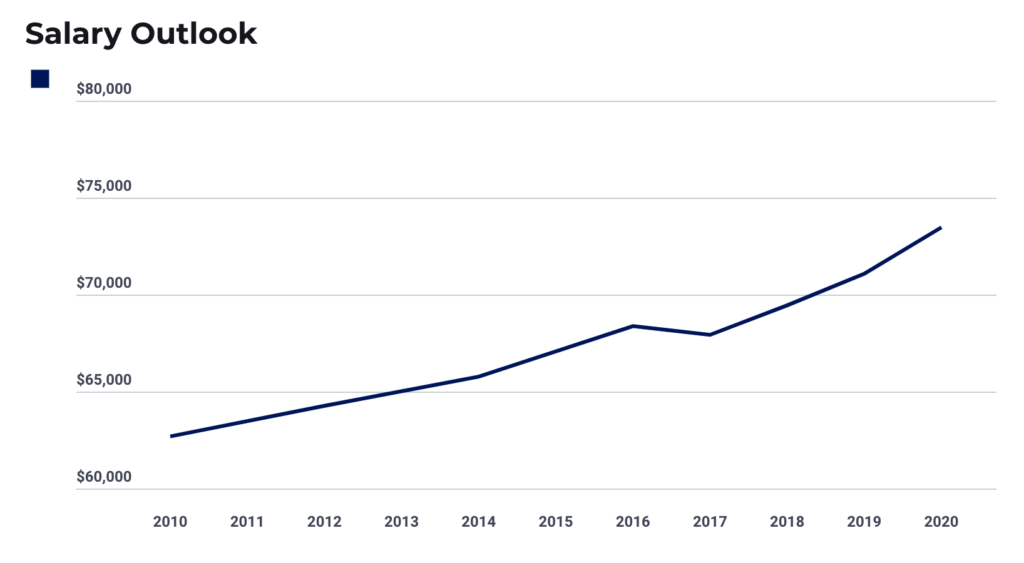Over Half of Salespeople Will Take a Pay Cut for Increased Flexibility: How to Attract Top Sales Reps When You Can’t Win the Bidding War
Published on Jul 21, 2022

Sales recruiting is hard. When you combine a global talent supply shortage, younger professionals shying away from the sales industry, and increasing competition, it’s not easy to attract top sales reps. This is especially true if you’re a fledgling startup and simply don’t have the financial power to pay big salaries.
Fortunately, there’s a workaround that can help you snag A+ talent without having to shell out big bucks. And it all boils down to one thing — flexibility. Allow me to explain.
Sales Rep Salary Outlook
A few months ago, I wrote an article about sales rep salary in 2022 that discussed how much today’s salespeople earn on average. In it, I mentioned that the annual median salary is around $62,000. However, more talented individuals can earn closer to $90,000 per year.
And when you look at the overall trajectory of salesperson salary moving forward, it’s clear it’s not slowing down any time soon.
While keeping up with salary growth may not be a big deal for well-established companies with deep pockets and plenty of clout, it’s not always easy for smaller businesses that are just getting their footing. So if your company is closer to the latter and you can’t afford to write huge paychecks, you need to get creative in order to attract top sales reps.
This leads me to the crux of this article.
How to Attract Top Sales Reps with Increased Flexibility
While there are numerous strategies for winning the talent war without paying more, one of the most realistic is to create a more flexible workplace that helps salespeople establish a healthy work/life balance. According to a recent PwC study about the future of recruiting, they found “slightly over half (51%) of sales reps would forgo higher salaries for more flexibility. That’s even higher among women (53%) and those who have been in the workforce longer (56%).”
More specifically, sales reps are willing to give up to 12% of their salary to have great flexibility.
And there’s plenty of other data that echoes the same sentiment. In fact, a recent hybrid working study by the Harvard Business Review said “59% of respondents reported that ‘flexibility’ is more important to them than salary or other benefits.” By these numbers, it’s clear that offering more flexibility can be an effective way to level the playing field when you can’t offer as high of a salary as other companies.
What Types of Workplace Flexibility Are Most Effective?
There are two main types of arrangements that can create a more flexible workplace.
First, there’s telecommuting where salespeople can work from home or on the road either full-time or part-time. With COVID basically forcing businesses to embrace contactless communication within themselves and with their customers, telecommuting has rapidly evolved in a short period of time. That’s why it’s something to heavily consider adapting in at least some capacity if you haven’t done so already.
Fortunately, with an abundance of cutting-edge software available for nearly every industry, telecommuting is easier than ever. A sales management system, for example, allows you to automate workflows, assign leads to sales reps, track KPIs, and more. A video conferencing platform like Zoom allows for high-quality sales calls, group meetings, and sales demos. And project management software like Asana and Trello makes it easy to break large projects down and monitor them from conception to completion. You can get a ton of helpful information on managing a remote workforce in this previous article we wrote.
Second, there’s flexible scheduling, which according to the SHRM, can include the following arrangements:
- Flextime
- Compressed workweek
- Shift work
- Part-time schedules
- Job sharing
While it can, admittedly, create scheduling conflicts, and you need to look at it from every angle before letting salespeople work whatever schedule they want, flexible scheduling can be highly effective for attracting top talent. It’s just a matter of figuring out what will realistically work for your company. Also, it will likely take some trial-and-error before you get it just right. But with a bit of refinement, flexible scheduling has the potential to work well for your company.
Note that flexible scheduling can create some challenges from a legal perspective. Managing benefits, workers’ compensation, and independent contractor classification, for example, can become more difficult when you’re not operating with a traditional full-time work week. That’s why you’ll need to fully consider all the legal implications before making any official changes.
This resource from the SHRM is extremely helpful for this and highlights everything to take into consideration before implementing flexible scheduling.
Looking Beyond Salary to Attract Top Sales Reps
Let’s be real. Salary is important. At the end of the day, talented salespeople will always want to be paid well. But it’s not the only factor that determines who they choose to work with.
Workplace flexibility has become increasingly important for many salespeople, and that’s not a trend that’s likely to end any time soon. While this won’t guarantee you’ll get every rockstar you want, it can definitely put your company on the radar of more talented reps and help get your foot in the door when you can’t afford to pay a big salary.
Find out how HireDNA can help you get a steady pipeline of pre-screened, qualified sales candidates to grow your team and thrive within your industry. HireDNA can cut your hiring time in half, and 92% of recommended candidates become sales leaders within their first year.


